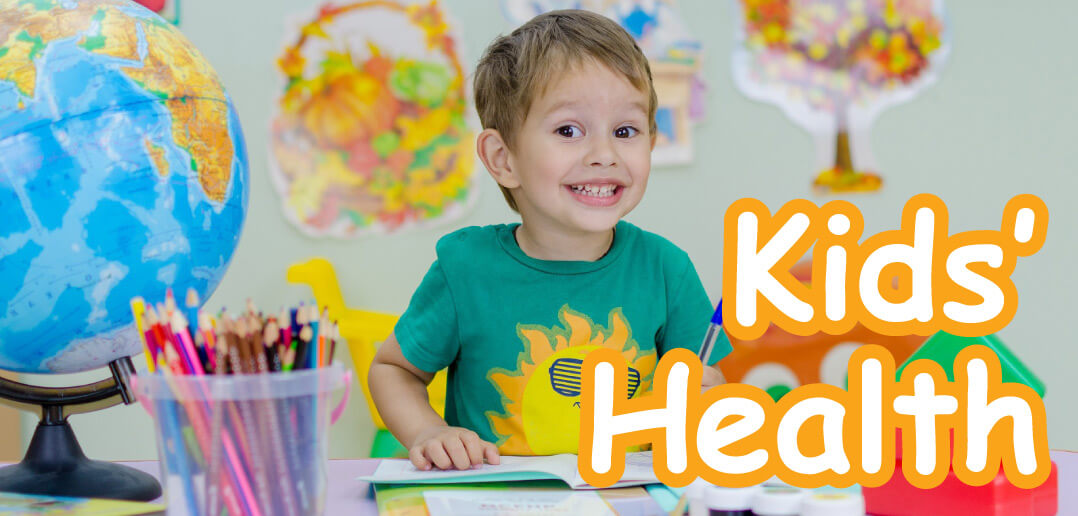Kids’ Health in Omaha, NE 2018
There are many different types of businesses and organizations, both large and small, that are committed to supporting the good health and overall wellness of our community’s youngest members. Physical, mental and emotional health are all equally important and are all being addressed as such by parents/guardians and professionals alike. We took the opportunity to consult with a couple of our clients who graciously offered their tips and insights.
Dental Health: “Regular dental checkups should be done twice a year, every six months,” advises Candace Crews with Anding Family Dental. “Oral home care for kids should include brushing their teeth two times a day for two minutes each time, and flossing every night. Often, kids and adults alike think they are brushing for two minutes until they actually time themselves. Setting a timer will ensure you hit the mark consistently, so I recommend having one available nearby the other brushing supplies. I also encourage parents to still help their kids brush and floss up to 6 years of age.
Since fluoride helps prevent cavities, in adequate doses, fluoride is helpful to a child’s dental health. Brushing with fluoride toothpaste at home helps stop the growth, or multiplication, of the cavity-causing bacteria in the mouth. For kids, at their six-month dental check-ups, the professional application of fluoride can destroy those same bacteria.
Additionally, diet plays such a large role in dental health. Sugar can have such a negative impact on kids’ overall dental health. Many sugary foods tend to stick to our teeth, especially in the pits and grooves, and can cause cavities. Everything is okay in moderation, but limiting the intake of sugary foods and beverages is wise, especially for kids. Consider substituting healthier options. Also, avoid chewing gum containing sugar. Instead, replace it with gum or mints containing xylitol.”
In closing, Crews emphasizes, “Kids listen to their parents and also pay attention to their parents’ oral home care habits. The habits you create as a kid will usually stick with you into adulthood.”
Mental Health: “The health benefits associated with providing mental health therapy can help kids and families lead stronger, healthier lives,” advises Kalisha Reed with CRCC. “Kids and families often have improved relationships and communication. Individuals may learn to manage their emotions in a more positive and healthy way. Those who have experienced trauma and/or grief learn ways to cope effectively.
Children and teens are faced with many issues that may impact their ability to be successful at school, work, or to have healthy relationships with their parents, peers, and/or siblings. Proving mental health therapy helps to build resiliency by addressing these topics in a safe, therapeutic environment. Additionally, helping those who have been impacted by trauma can help to increase their skills in expressing and managing their emotions.
However, a significant barrier for many families is access to services. This is especially true with kids who have special needs. Access can be compromised by insurance, location of providers or services, and finding someone you can trust. In helping to address this issue we have two locations servicing Northwest and Southwest Omaha. We partner with the Connections Program to provide therapy in the schools and to decrease socioeconomic barriers as well. Additionally, we have a partnership with Millard Public Schools to house a mental health therapist who provides an integrated approach to school-based mental health care.
As a mental health therapist, my primary focus is to promote positive mental and emotional wellbeing for kids and their families. I specialize in working with children and adolescents who have co-occurring mental health and special needs due to medical complexities and/or cognitive deficits. In working individually with kids, I focus on promoting positive social skills, feelings identification, expression of emotions, and trauma. My work with families focuses on how to help their child be the best they can be by supporting individual family needs. Community resources can include providing parenting education on attachment through group therapy and parenting classes. I also help families in accessing other resources such as joining the Y, getting a mentor, or encouraging participation in an activity as a family.”
In closing, Reed emphasizes, “It is okay to seek help and ask for help. Therapists can serve as an extension of the family unit, providing needed support, education, and most of all treatment to disorders that may be negatively affecting you and impacting your relationships. CRCC offers a collaborative approach to the treatment needs of children. Our integrated use of therapy services ensures that the needs of the child and family can be met under one roof.”
Partnering with the right professionals throughout the journey of raising a child and the different stages you’ll go through will ensure you are doing what’s necessary to keep him/her healthy and happy. We encourage you to be proactive and diligent, reach out and connect, explore the possibilities, find what works and stay the course!



